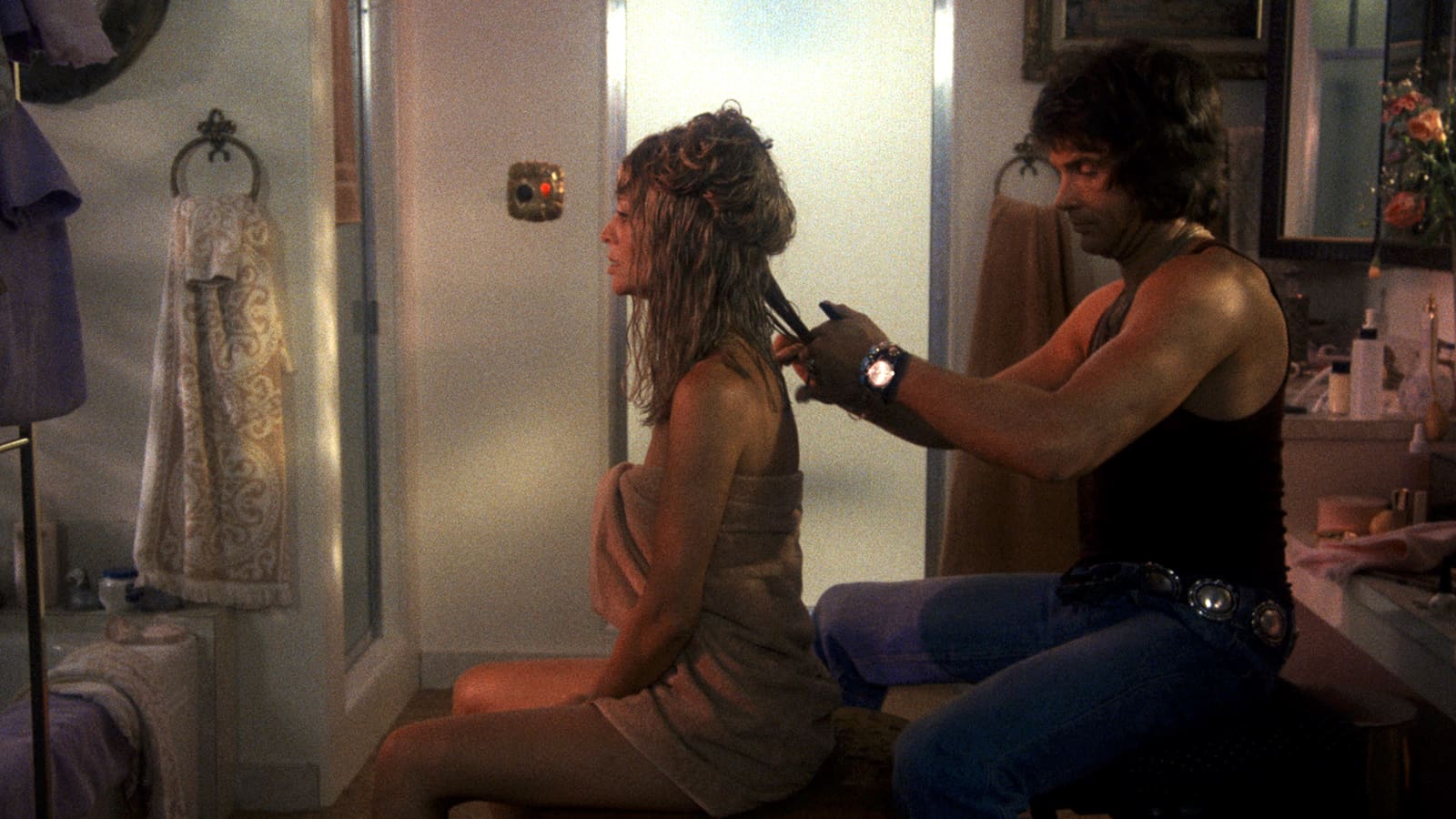“Shampoo” takes place on the day that Richard Nixon won the presidency in 1968, but none of the characters in the film are particularly interested in politics. They all live in luxurious estates in Beverly Hills, make glib comments and dress in glamorous couture. No matter who was running the country, they would continue to play tennis on their private courts and attend posh parties. They would still have their hair done by George Roundy, the most renowned stylist in Beverly Hills. For his part, George is more concerned about his erections than any elections. He takes most of his clients to bed, and at the start of the film, he is entangled in affairs with Felicia, an insecure socialite, Jill, an aspiring actress, and Jackie, a free-spirited social climber. George’s attitude is by no means unique. The women also have multiple partners, and Felicia’s husband Lester is unfaithful. This summary of the movie may make it seem like a facile farce, but “Shampoo” is about something more profound than licentious liaisons. Rather, director Hal Ashby and screenwriters Robert Towne and Warren Beatty use the characters’ sexual entanglements to elucidate profound and irreversible transformations in American society.
At first glance, Beverly Hills might not seem to be a microcosm of American life, but the town was not always associated with debauchery. In the 1930s, Beverly Hills was one of the most conservative communities in California. Before the movie stars moved into their mansions, William H. Hays and Joseph Breen resided there. From their palatial perches, Hays and Breen became concerned about the content of Hollywood films. Therefore, they created the Hollywood Production Code, which placed strict restrictions on filmmakers. They could not take on controversial topics like homosexuality or miscegenation, they had to respect religious dogma, and they must demonstrate that crime doesn’t pay. “Shampoo” could never have been made under the Production Code, because the Code explicitly stated that “pictures shall not infer that low forms of sex relationship are the accepted or common thing.”
For George and his clients, casual rendezvous are common, but the characters realize that their promiscuity would not be accepted in most circles. They all have devised rationales for their behavior, and George’s defense is the most riveting and revealing. He sees all women as sirens. He goes into the beauty salon and “they’re all so great-looking, and [he’s] doing their hair, and they look great, and they smell great.” Sleeping with them makes him feel “like [he’s] going to live forever.”
Perhaps George can only find a constant supply of consenting sexual partners in Beverly Hills, but he is not the only American to lust after immortality. In 1967, the writer Joan Didion traveled to San Francisco’s Haight-Ashbury district and documented the lifestyles of the youth there. Her portraits of these hippies were far from flattering. In her essay “Slouching Towards Bethlehem,” she exposes their shallowness and their senselessness. While they believe that they are fundamentally changing society, Didion reveals that most of them are nothing but drug addicts. High on hashish, cocaine and LSD, they lay out impossible pipe dreams for the future, but they also destroy their own lives. No one in “Shampoo” does drugs, but they get a buzz from lovemaking.
Indeed, Ashby, Towne, and Beatty construct the film as if it were a dazzling drug trip. The first part of the film is a dynamic comedy. In their screenplay, Towne and Beatty create all kinds of complications. George tells each of his women that she is “great” and that she is the only woman he wants. To cover up her affair with George, Felicia convinces her husband that he is gay. Lester pretends that he is just friends with Jackie, his mistress. Ashby quickly cuts between the characters and suffuses the story with manic energy. Still, this farcical euphoria wears off. As these antic affairs continue, the characters come to realize that there is a difference between lovemaking and love. All the lies they have told each other seem inconsequential now because they must confront a larger falsehood — they don’t really know what love is. Beatty and Towne’s witty dialogue gives way to painful pauses. Ashby’s camera lingers over the wounded expressions on the characters’ visages. All of them want to experience the exalted love that the Production Code valorized, but they are only familiar with “low forms of sex relationship.”
In some sense, they are linked to the flower children Didion criticized. Didion stated that the hippies’ habits developed because, “at some point between 1945 and 1967, we had somehow neglected to tell these children the rules of the game we happened to be playing. Maybe we had stopped believing in the rules ourselves, [or] maybe we were having a failure of nerve about the game.” The people in “Shampoo” have forgotten the traditional rules expressed in the Production Code, and there is no going back now.
With so much turmoil in their lives, it’s not surprising that no one in the film would make note of Nixon’s election. Yet, “Shampoo” illustrates a profound historical truth. In his campaign, Nixon promised to restore “law and order” to the country and to make the silent majority heard again. Still, his initiatives are as futile as the characters’ attempts to return to the parameters of the Production Code. America has been altered by the high hippies of Haight-Ashbury and the profligate people of Beverly Hills. Ultimately, societal change is not like shampoo. It’s hard to wash out of your hair.
Contact Amir Abou-Jaoude at amir2 ‘at’ stanford.edu.
